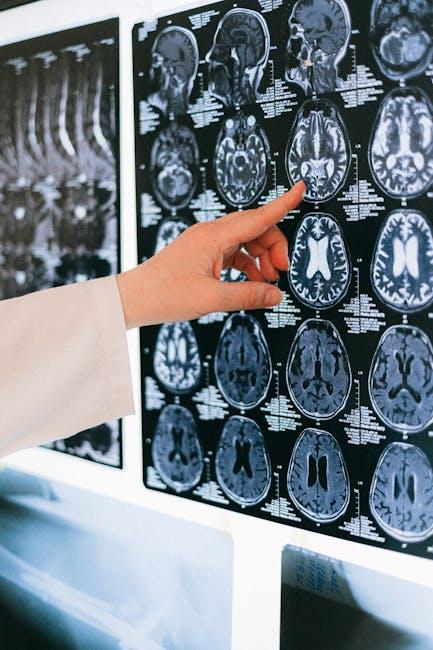
Routine and Emergency Management Guidelines for Dental Patients with Renal Disease and Kidney Transplant – Part 1
Managing dental care for patients with renal disease and kidney transplants requires specialized knowledge and protocols to ensure safety and efficacy. This article distills the critical information from the (PDF) Routine and emergency management guidelines for the dental patient with renal disease and kidney transplant. Part 1 – researchgate.net, offering dentists, oral health professionals, and caregivers comprehensive guidance on routine and emergency dental management. Whether you’re preparing for a routine dental check-up or handling an unforeseen oral emergency, understanding the nuances of managing these vulnerable patients is vital.
Understanding Renal Disease and Kidney Transplantation in Dental Care
Renal disease, especially chronic kidney disease (CKD), and kidney transplantation profoundly impact the patient’s systemic health and, subsequently, their oral health. The kidneys’ failure to adequately filter toxins leads to various complications ranging from altered medication metabolism to bleeding risks and infection susceptibility. Kidney transplant recipients often take immunosuppressive drugs that increase infection risk and may induce oral complications like gingival hyperplasia.
Key Considerations for Dental Professionals
- Systemic Vulnerability: Patients are immunocompromised or have altered homeostasis, influencing healing and infection control.
- Drug Interactions: Adjusting medications and avoiding nephrotoxic drugs is essential.
- Bleeding Risk: Renal disease patients may suffer from platelet dysfunction and coagulopathies.
- Timing with Dialysis: Optimal scheduling around dialysis sessions prevents complications.
Routine Dental Management Guidelines
Routine oral care aims to maintain optimal dental health, prevent infections, and identify issues before they escalate. Follow these guidelines to treat dental patients with renal disease or kidney transplant safely:
Pre-Treatment Assessment
- Medical History Review: Detailed renal function status, transplant date, medication lists including immunosuppressants, and dialysis timing.
- Consultation with Nephrologist: Coordination assures safe dental interventions, medication adjustments, and bleeding risk evaluations.
- Laboratory Tests: Recent CBC, bleeding profile (PT, aPTT), renal function tests (BUN, creatinine) to assess clinical status.
Appointment Planning
- Scheduling: Preferably the day after dialysis to reduce bleeding and infection risk.
- Minimal Stress: Establish a calm environment to reduce cardiovascular strain.
- Short Sessions: Multiple short appointments better tolerated than prolonged ones.
Dental Treatment Recommendations
- Avoid nephrotoxic drugs such as NSAIDs and adjust dosages of antibiotics and analgesics accordingly.
- Use atraumatic techniques with careful handling to minimize bleeding.
- Maintain strict infection control protocols, given immunosuppression in transplant patients.
- Limit invasive procedures when possible and ensure antibiotic prophylaxis if indicated.
- Implement rigorous oral hygiene education and preventive care to reduce infection risk.
Emergency Dental Management Guidelines
Dental emergencies in patients with renal disease or kidney transplants require urgent yet careful treatment to manage pain, prevent infection, and avoid systemic complications.
Common Emergencies and Protocols
| Emergency Type | Management Guidelines |
|---|---|
| Acute Dental Infection | Initiate antibiotics adjusted for renal function; drainage preferred over extraction when possible. |
| Dental Trauma | Avoid excessive manipulation; control bleeding rigorously; coordinate with nephrologist. |
| Severe Pain | Use renal-safe analgesics such as acetaminophen; avoid NSAIDs; consider nerve blocks. |
| Oral Bleeding | Apply local hemostatic agents; confirm clotting status; possible platelet transfusion if indicated. |
Important Emergency Tips
- Maintain close communication with the patient’s medical team.
- Monitor vital signs carefully throughout emergency procedures.
- Have emergency drugs and equipment ready for anaphylaxis or cardiovascular events.
- Postpone non-urgent dental work until patient stabilization.
Benefits and Practical Tips for Dental Care Providers
Implementing tailored guidelines for renal patients ensures better treatment outcomes and safety. Here are practical tips and benefits:
- Benefit: Reduces risk of infections and systemic complications post dental treatment.
- Tip: Use antimicrobial mouth rinses (chlorhexidine) pre- and post-procedure to reduce bacterial load.
- Benefit: Improved patient compliance and trust from personalized care approaches.
- Tip: Train dental staff on recognizing signs of renal disease complications and emergency protocols.
Case Study: Successful Management of a Kidney Transplant Patient
Patient Profile: A 45-year-old male with a kidney transplant 2 years ago, on tacrolimus and prednisone, presented with severe periodontal disease and intermittent oral pain.
Management Approach:
- Collaborated with nephrologist to evaluate immunosuppression status and adjust antibiotics to renal function.
- Scheduled short appointments immediately after dialysis sessions.
- Performed conservative periodontal therapy with local anesthesia carefully selected to reduce toxicity.
- Monitored healing closely with follow-ups to prevent infection or dehiscence.
Outcome: Patient experienced no complications and reported improved oral health and comfort. Timely dental care avoided exacerbation of systemic conditions.
Conclusion
Dental management of patients with renal disease and kidney transplants requires a thorough understanding of their complex systemic conditions and careful planning. By following the routine and emergency guidelines set forth in Part 1 of the ResearchGate guidelines, dental professionals can offer safe, effective, and compassionate oral care. Prioritizing communication with medical teams, adapting dental procedures, and maintaining heightened infection and bleeding control protocols are key to successful outcomes. Stay informed and proactive—your diligence can make a significant difference in the overall health and quality of life for this vulnerable patient population.


